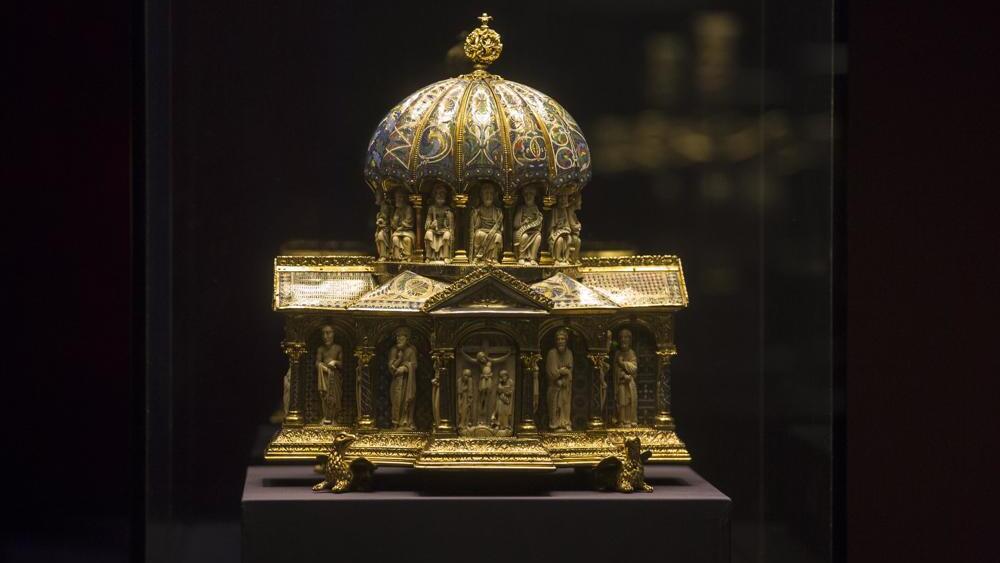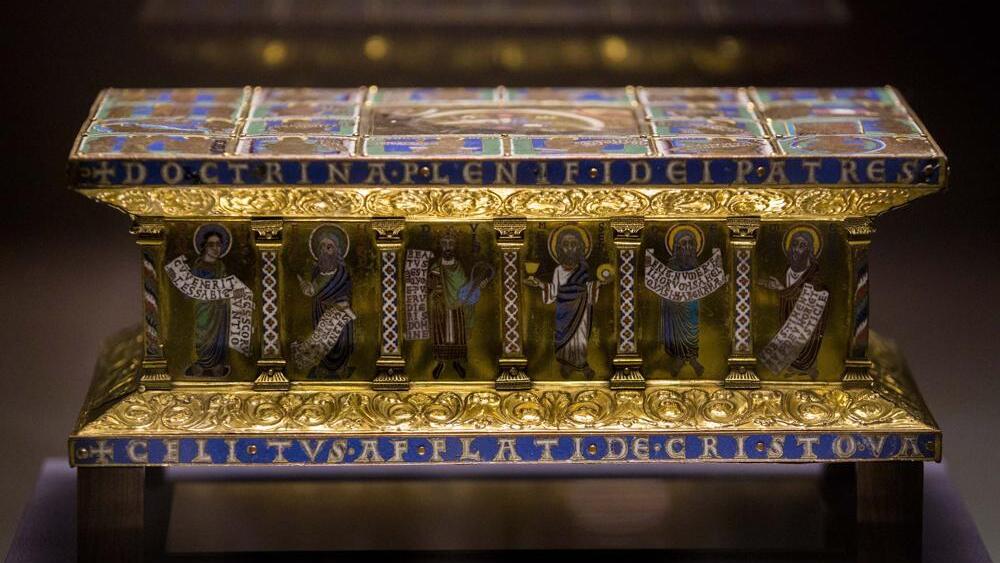An American court has thrown out a lawsuit against a German museum foundation over a medieval treasure trove that was filed by heirs of Nazi-era Jewish art dealers, saying that the U.S. lacked jurisdiction to hear such a lawsuit.
The foundation that oversees Berlin’s museums said in a statement Tuesday that the U.S. District Court for the District of Columbia last week granted the foundation’s motion to dismiss the 2015 restitution lawsuit that was brought against it, bringing the case to an end in the U.S., absent an appeal by the plaintiff.
2 View gallery


The medieval Dome Reliquary (13th century) of the Welfenschatz, is displayed at the Bode Museum in Berlin on Jan. 9, 2014
(Photo: AP)
The Welfenschatz, or Guelph Treasure, which is at the center of a long-running ownership dispute, includes silver and gold crucifixes, altars, intricate silverwork and other relics worth more than 200 million euros (dollars).
The collection, which has been on display in Berlin since the early 1960s and is currently at the city’s Bode Museum, is considered the largest collection of German church treasures in public hands.
2 View gallery


The medieval portable altar of Eilbertus a part of the Welfenschatz, is displayed at the Bode Museum in Berlin on Jan. 9, 2014
(Photo: AP)
The heirs maintained that their ancestors had no choice but to sell the Christian artifacts in 1935 to the Nazi government for less than their value.
The state-run foundation that owns the collection has said the collectors weren’t forced to sell the treasures, arguing among other things that the collection was not even in Germany at the time of its sale.

